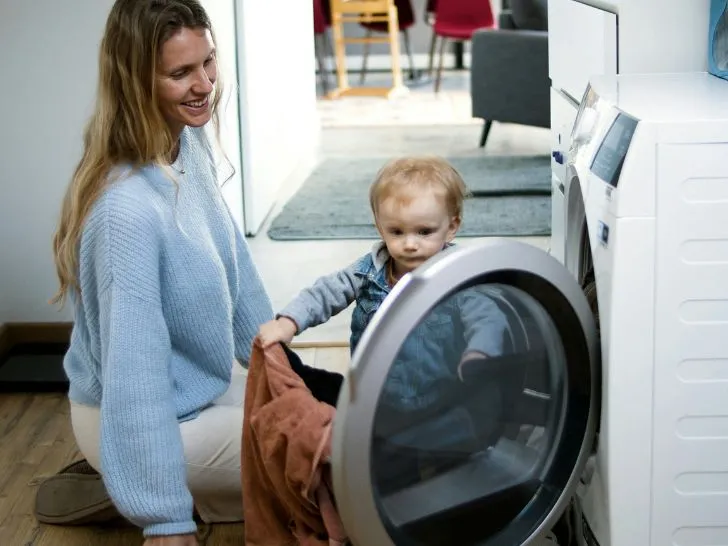Does Airbnb Allow Emotional Support Animals?
Airbnb, a company started in 2007 by friends Joe, Nate, and Brian to bring people together in a community, has become a widespread phenomenon with more than four million hosts around the world.
With an Airbnb, hosts lend out their homes to guests for a price per night. This helps brings in tourists, brings communities together, and creates a social interaction that can lead to friendships and more.
The Bottom Line:
- What Exactly Is an Airbnb?
- How Does Airbnb Support Emotional Support Animals and Those With Disabilities?
- Emotional Support Animals and Individuals With Disabilities
- FAQs About Emotional Support Animals
What Exactly is an Airbnb?
Airbnb was started in 2007 by three friends; Nathan Blecharczyk, Brian Chesky, and Joe Gebbia. They created Airbnb to help guest arrivals worldwide find one-of-a-kind activities and places to stay when visiting a foreign site.
Their goal was to help guests “experience the world in a more authentic, connected way.”
Since then, Airbnb has welcomed over six million hosts worldwide, with over 100,000 cities and towns with active listings and over 220 countries and regions with listings on Airbnb’s website.

How Does Airbnb Support Individuals With Emotional Support Animals?
Airbnb has a specific policy regarding emotional support animals (ESAs) and service dogs. They have an Accessibility Policy due to Airbnb being built on inclusion, belonging, and respect principles. They welcome and support people who fall under the Americans with Disabilities Act (ADA) and those with mental or emotional disabilities.
According to the Accessibilities Policy, Airbnb allows guests who need service animals to be present during a stay. They do not condone hosts refusing a reservation or charging additional fees for legitimate service animals.
Airbnb does allow hosts to ask if the guests require their pets due to it being a service animal for a disability or what work or task the service animal is trained to do, but they are not allowed to specifically ask what disability the pet owner has.
Airbnb also does not allow discriminatory language or different rules to be applied to guests who have service animals.
However, Airbnb does have some rules about service animals, companion animals, and service dogs.
Service animals must be housebroken and must not:
- Be out of control
- Be left alone without prior approval from the host
- Be allowed into areas considered unauthorized to the guest
- Allowed in public spaces without being harnessed or leased and not under the guest’s control
While the ADA does not recognize emotional support animals as the same as service animals, Airbnb has some rules regarding emotional support animals, such as emotional support dogs or emotional support cats.
The emotional support dog must be housebroken and not:
- Be out of control
- Be left alone without prior approval
- Be allowed into areas unauthorized by the host
- Be qualified in public spaces without being harnessed or leashed and not under the guest’s control
Hosts are not allowed to refuse a guest’s service animal, especially if they offer a therapeutic benefit to a person with a disability or therapeutic animals, such as a companion animal or an assistance animal.
Guests can always request reasonable accommodations or special accommodations during their stay, but it is best to check with the host and make sure such accommodations can be met. Due to a person’s disability or mental health, accommodations may need to be met by the host. However, the federal government and local laws should always be followed.
With accommodations, it can be helpful to have an emotional support animal (ESA) Letter. With Pettable’s online option of meeting with a licensed mental health professional, it can be easy to receive a letter within 24 hours of consultation exclusion of California residents.
After filling out a few questions with Pettable’s survey, you will receive an email with a link to set up an appointment with a licensed mental health professional. The mental health professional will determine whether an ESA will benefit your mental health during the consultation.
Upon finishing the consultation, you will be able to request the specific letter needed. This letter can either be a housing one that, under the fair housing act, means landlords and hosts must allow your ESA despite having a ‘no pet policy,’ or a travel letter stating your service dog or service animal can accompany you during your travels. You may also get the option to request both.
ESA Letters are accepted by Airbnb and require hosts to allow your service animal to be with you during your stay under the fair housing act.
Emotional Support Animals and Individuals With Disabilities
Emotional support animals can help individuals with mental and emotional disabilities. This can be a lengthy list, and a few different kinds of assistance animals may only fit a specific person’s disability.
Psychiatric Service Dog (PSD)
A psychiatric service dog (PSD) is described as being professionally or individually trained to perform a specific task relating to a person’s disability.
Mental and emotional health issues that may require a psychiatric service dog are:
- Anxiety: Persistent feelings of dread, fear, and uneasiness and can lead to feeling restlessness, nervous or even depression
- Bipolar Disorder: Extreme mood swings, including emotional highs like mania or hypomania and emotional lows such as depression
- Depression: Persistent, overwhelming feeling of sadness, unable to feel enjoyment, constant guilt or regret
- Post Traumatic Stress Disorder (PTSD): Mental health condition that’s triggered by a terrifying event, either experiencing or witnessing it
- Schizophrenia: A chronic brain disorder that causes the individual to have delusions, disorganized speech, hallucinations, trouble thinking, and a lack of motivation
Emotional Support Animals
Emotional support animals (ESAs) are pets that offer emotional support during difficult times. They do not need special training and can be any domestic animal, with dogs and cats being the most popular choices.

Service Animals
Individuals who qualify for disabilities under the ADA may have service animals that are specifically trained to aid individuals with mobility, physical, or vision problems, such as:
- Blind
- Deaf
- Wheelchair-Bound
- Narcolepsy (Larger service dogs can offer stabilizing support upon sensing a narcoleptic episode)
- Diabetes (There are some service animals specifically trained to feel when blood sugar is too low or too high)
- Heart problems (Sometimes, a service dog can sense when a heart attack is happening minutes before it starts)
- Seizures/Epilepsy (Sometimes, a service dog can be trained to apply deep pressure therapy during a panic attack or sense when a seizure is happening in individuals, typically called a seizure response dog)
FAQs About ESAs and Airbnb
ESAs and therapy or assistance animals are essential to have along on journeys. However, it can be daunting trying to find accommodations for your disability and your service animal.
What Do I Need to Have to Allow an Airbnb to Accept My Service Dog?
While there are no federal laws that state ESAs, PSDs, therapy, or assistance animals need to wear vests or have paperwork, it can help resolve or avoid conflict. Service dog vests can be helpful in quickly identifying comfort animals as service animals, as well as paperwork and ESA letters.
Can an Exotic Animal Be My Service Animal?
ESAs and therapy animals can be any species, any breed. While they are typically cats or dogs, some individuals have opted for a miniature horse or even amphibians to be ESAs. There should not be a problem as long as they are domesticated animals and state and local laws are being followed.
Can Airbnb Charge Me a Pet Deposit?
Suppose your companion animal is a registered service dog or an ESA with a letter. In that case, Airbnb cannot charge you a pet deposit or charge you different fees due to having an emotional support animal.
Can a Landlord or Airbnb Host Deny Me my Service Animal?
Due to the Fair Housing Act, housing providers are not allowed to deny you therapy animals, emotional support dogs, or any animal trained to perform specific tasks or animals that are emotionally needed to assist people.







